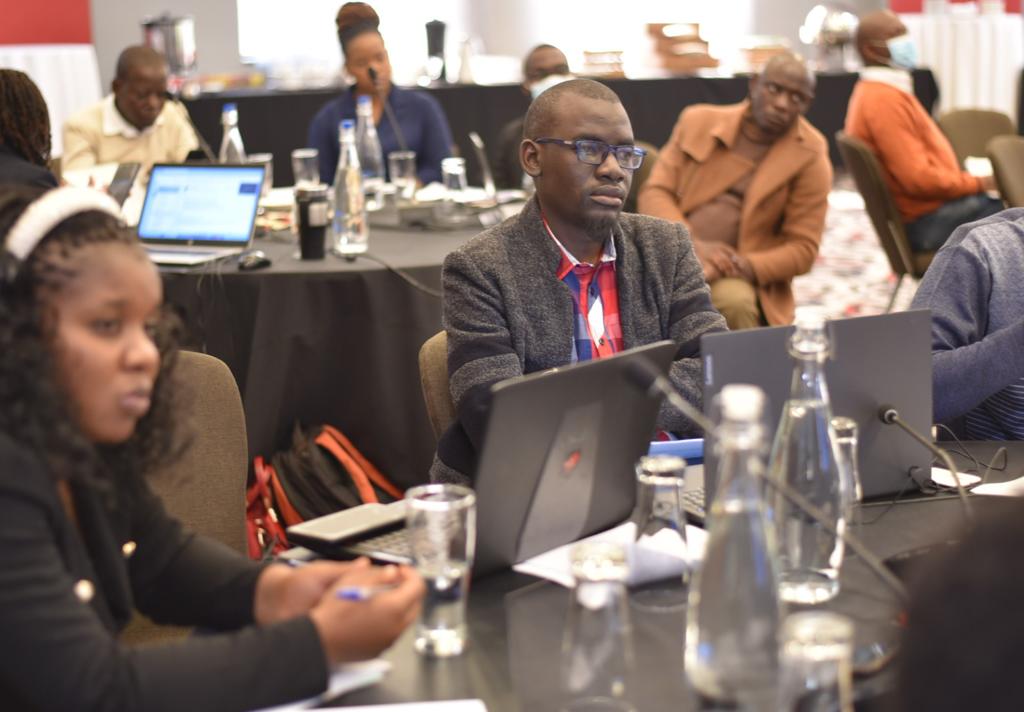Date

Civil Society Organisations (CSOs) in Zambia have called for the implementation of international tax reforms to boost domestic resource mobilisation in the country.
During a one-day capacity-building session held in Lusaka, Zambia, in June, representatives from civil society organisations agreed that implementing international tax reforms will enhance efforts in the achievement of local tax reforms.
The capacity-building session was organised by Tax Justice Network Africa (TJNA) in collaboration with the Centre for Trade Policy and Development (CTPD), Zambia Tax Platform (ZTP), Action Aid Zambia, Norwegian Church Aid (NCA), and Oxfam in Southern Africa.
It brought together over 30 representatives from over 10 CSOs in Zambia and sought to impart knowledge and skills vital for advancing impactful domestic tax reforms for Zambia’s economic development. It provided a platform for the CSOs to exchange experiences and discuss progress towards achieving the Addis Tax Initiative (ATI) Declaration 2025 vision of “tax systems that work for people and advance the Sustainable Development Goals (SDGs).”
In his opening remarks, Mr Isaac Mwaipopo, the Executive Director of the Centre for Trade Policy and Development (CTPD), underscored the importance of CSOs' engagement in international taxation issues and noted that the meeting provided a platform to assess Zambia's progress in terms of domestic resource mobilisation.
“It is important for CSOs to take an interest in international taxation. This meeting is meant to reflect on Zambia’s progress in reference to its domestic resource mobilisation.” Mr. Mwaipopo noted.
Speaking at the event, TJNA’s Executive Director, Ms Chenai Mukumba, said that while local efforts to enhance taxation regulations are vital, they can only bear fruit if international tax regulations also evolve.
Ms Mukumba noted the tangible efforts towards transforming the global tax architecture, which led to the formulation of the Two Pillars solution within the Organisation for Economic Co-operation and Development (OECD) Inclusive Framework, a pivotal development in international taxation. However, she emphasised the importance of inclusivity in such processes and the importance of such decisions being made at a forum where all states are on an equal footing.
Several presentations were made on the two-pillar solution, including unpacking pillar one and the digital economy taxation in Zambia from Everlyn Muendo, TJNA’s Policy Associate, Tax and Investment.
Speaking during a panel discussion, Ms Muendo appreciated the work that Zambian CSOs are doing regarding international taxation and said that they should continue to encourage public participation and transparency in decision-making processes on international tax issues. She further advised that Zambia’s DRM policy should consider taxing the informal sector and maximise revenue from multinational entities.
Following the discussions, the CSOs gave recommendations to foster a fair and inclusive international tax system. The outcomes included the following:
- Transparent Processes: CSOs urged the government to adopt transparent processes involving extensive public participation before implementing international taxation measures.
- Thorough Assessments: Zambia’s government encouraged to conduct comprehensive assessments to gauge the potential revenue generated from implementing pillars one and two of the international tax framework.
- Consideration of Government Tenure: Taxation decisions should account for the government's current tenure in power, avoiding commitments that extend beyond their term.
- Familiarity with Economic Losses: Government should familiarise itself with the potential economic losses resulting from not taxing digital economy services entirely to make informed choices.
For more details about participation, please contact emuendo@taxjusticeafrica.net